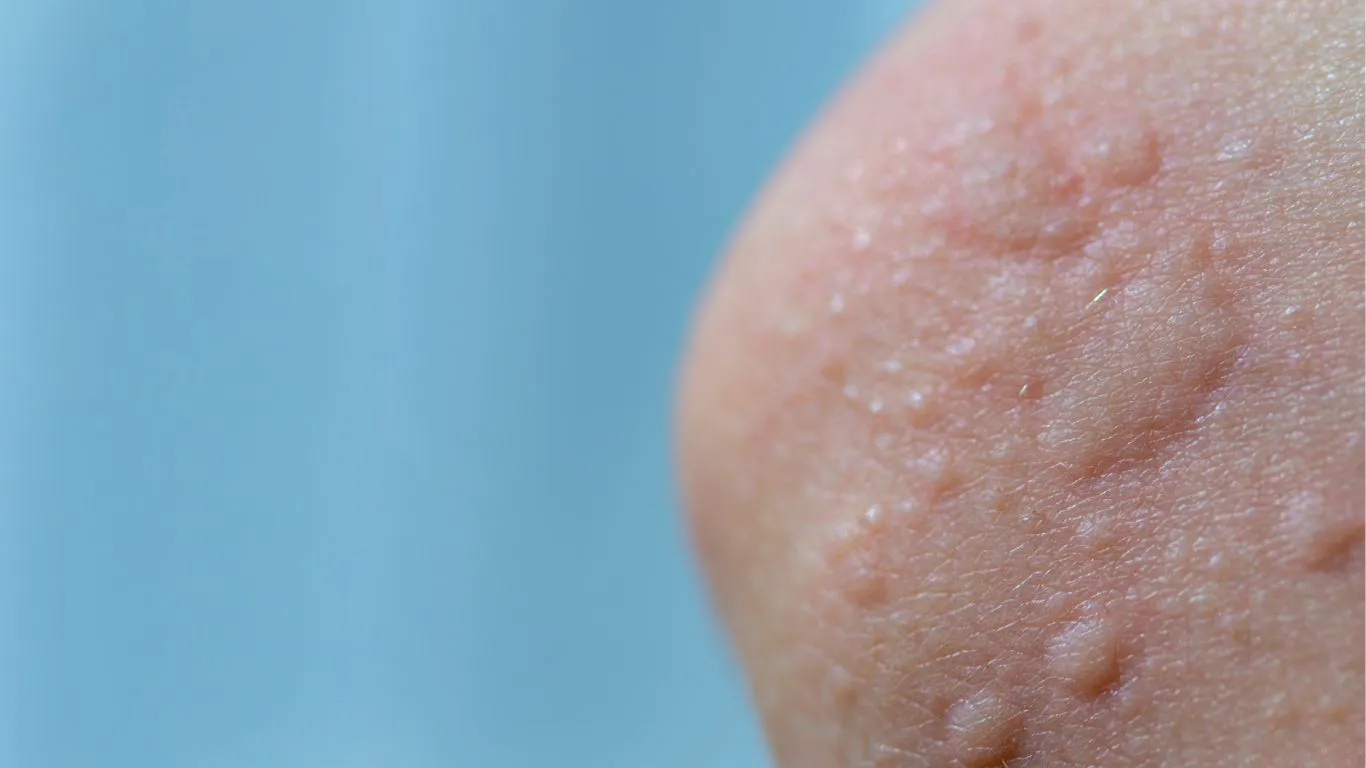Urticaria, commonly known as hives, is a skin condition characterized by raised red welts on the skin, resulting from an allergic reaction to certain substances, and is often accompanied by severe itching. These welts can appear anywhere on the body and may change in size and shape.
Types of Urticaria
Urticaria is divided into two main types:
Acute Hives
This type lasts for a short period (hours to less than 6 weeks) and is often a result of an allergic reaction to food, medication, or specific substances.
Chronic Hives
This type lasts longer (more than 6 weeks) and may be associated with underlying health issues or chronic allergies.
Causes of Hives
In most cases, the exact cause of hives may not be known, but several factors can trigger allergic reactions, including:
- Food or medication allergies.
- Environmental factors such as heat, cold, or pressure.
- Insect bites.
- Animal dander.
- Dust mites.
- Infections.
- Scratches.
- Exercise.
- Contact with certain plants.
- Exposure to certain chemicals.
Diagnosing Urticaria
Diagnosis of hives relies on evaluating symptoms and the patient’s medical history. The doctor examines the skin to determine the nature of the rash and may inquire about potential triggers, such as foods, medications, or daily activities. In some cases, additional tests, such as allergy tests or blood tests, may be recommended to rule out other conditions.
Treatment of Urticaria
The best way to treat Hives is to avoid triggers that exacerbate symptoms, with treatment typically depending on whether the condition is acute or chronic. Available treatment options include:
Acute Urticaria
If symptoms are mild and occur after exposure to allergens or irritants, you can use some home remedies alongside medications to relieve itching until symptoms subside. Options that the doctor may recommend include:
- Taking cool baths, wearing loose clothing, and applying cold compresses.
- Antihistamines like cetirizine or fexofenadine.
- Soothing creams to relieve itching.
- Topical corticosteroids for short periods.
- If swelling occurs in the lips, face, or tongue, the doctor may prescribe an epinephrine injection for emergencies.
Read More: اثار حب الشباب وانواعها
Chronic Urticaria
Individuals with chronic urticaria may need to take antihistamines regularly until symptoms improve. In severe cases, a doctor may prescribe omalizumab injections, which help reduce levels of Immunoglobulin E (IgE), associated with allergic responses.
If tests reveal an underlying condition, such as lupus, the doctor will direct treatment for that condition.
How Can I Prevent Hives?
Prevention methods vary depending on the type of urticaria:
Acute Hives
Doctors can use allergy test results to identify triggers of acute urticaria. Once identified, steps can be taken to avoid them. Suggestions include:
- Eliminating certain foods from your diet.
- Reducing exposure to airborne allergens.
- Using fragrance-free and dye-free detergents and soaps.
- Avoiding sudden temperature changes.
- Practicing relaxation techniques and taking breaks when feeling stressed or fatigued.
- Wearing loose and lightweight clothing.
- Some of these tips may also be beneficial in managing chronic urticaria.
Chronic Hives
Preventing chronic urticaria may be difficult, as healthcare providers may not be able to pinpoint the exact causes. In some cases, chronic urticaria may be part of a larger medical condition affecting your immune system.
References:
- Hives. (2024b, May 1). Cleveland Clinic. https://my.clevelandclinic.org/health/diseases/8630-hives
- DermNet. (2023, July 10). Urticaria – an overview. DermNet®. https://dermnetnz.org/topics/urticaria-an-overview

